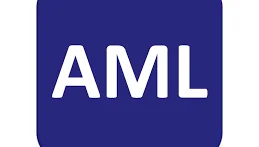Anti-money Laundering
One of the simplest, yet most effective, ways to combat money laundering activities is to utilize the financial institutions that are part of the FATF (Financial Action Task Force). FATF measures more than 140 countries' .
•
April 1, 2022

Financial crime is perhaps the greatest difficulty confronting enterprises today. It is described by complex between availability and it isn't characterized by topography, industry, or the sort of association. The tremendous hierarchical intricacy of worldwide enterprises expands threat of financial crime essentially by ideals of their size.
As for the anti-money laundering, it is about preventing people from using financial services for illegal activities. Illegal activities are usually construed as things that aren't taxed. The general interest of society in this area is obvious and it has been the subject of intense scrutiny. However, corporate interests have equally strong opinions on the topic and they have a tendency to soften or eliminate rules that inconvenience them.
Thus, there are three basic anti-money laundering (AML) controls in place in the UK.
1- Capital Controls, which prevent individuals or businesses from transferring large amounts of cash into or out of the UK
2- Banning access to UK financial accounts by nationals of clampdown countries
3- Management Controls, which restrict the activities of financial institutions within the UK that may
One of the simplest, yet most effective, ways to combat money laundering activities is to utilize the financial institutions that are part of the FATF (Financial Action Task Force). FATF measures more than 140 countries' suspicious transaction rules and reports on systemic weaknesses that facilitate money laundering. Businesses and consumers alike are becoming increasingly aware of the financial risks posed by their transacting behaviors. Although most anti-money laundering measures implemented by financial institutions have been proven to be effective, certain actors continue to misuse accepted methods in order to obtain illicit funds. The use of shell companies and anonymous payment methods is increasing exponentially as well.
In the wake of the financial crisis, people around the world have begun to look more closely at how they identify and monitor the sources of their money. The kind of anti-money laundering controls enforced by global financial institutions can make a difference. In particular, controls that prevent financial institutions from moving money around without identifying its origin or destination, often called "front driving" can prevent financial crimes like financial support for terrorism and illicit drug trafficking.
Related

Technology and Automation in Accounting and Auditing: Adapting to a Digital-First Future
The world of accounting and auditing is being reshaped by cutting-edge technologies, bringing opportunities and challenges for professionals and businesses alike. From blockchain to artificial inte...
Read more
Financial Reporting and Analysis in 2024: Key Updates You Need to Know
Financial reporting today isn’t just about crunching numbers; it’s about telling the full story behind a company’s performance, future potential, and impact. With new standards emerging, evolving a...
Read more
Navigating the Evolving World of Audit and Assurance
The world of auditing is not what it used to be—it's faster, smarter, and more focused on risk and fraud than ever before. With new technologies and methodologies reshaping how audits are done...
Read more